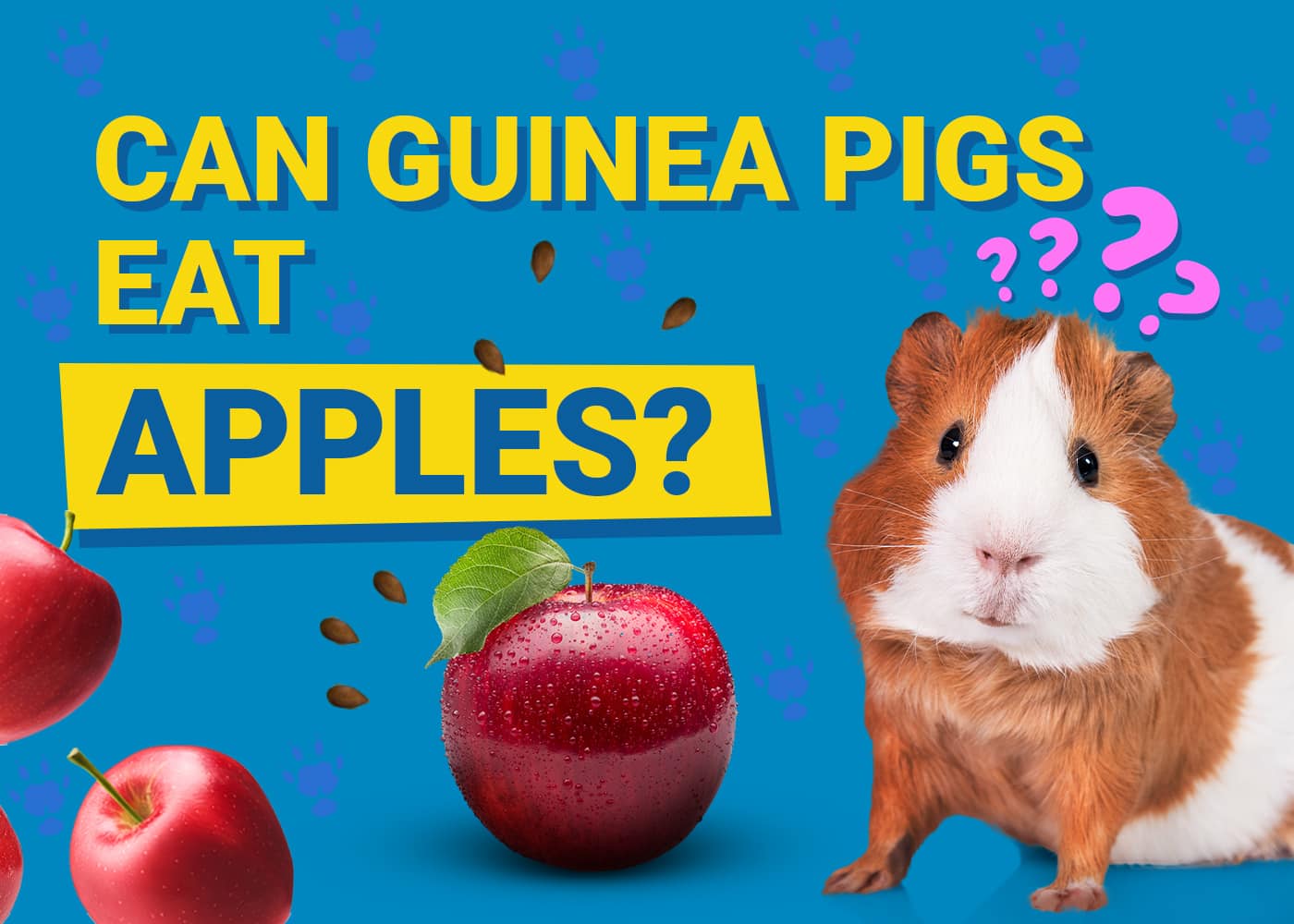
When it comes to tropical fruit, mango seems to be the clear favorite among humans and pets alike. But can guinea pigs enjoy this sweet treat?
Guinea pigs can eat mango, along with a number of other sweet fruits. However, you should only feed fresh mango, rather than tinned or otherwise processed, and it should only be fed in small amounts as an occasional treat. It should never be fed as part of their primary or staple diet because there are a number of potential health concerns associated with your guinea pig eating too much of this type of food.
Mango is high in vitamins and minerals, contains minimal fat, and is a sweet and tasty treat. Regardless of whether your guinea pig enjoys the treat, it is important to first know whether it is good for them, whether they can eat the whole fruit or only parts of it, and how much and how often you can give them this fruity snack. In this article, we answer these questions and more.
Benefits of Mango to Guinea Pigs
Your guinea pig’s diet should consist of approximately 80% hay and 15% vegetables. The remaining 5% can be made up of treats. This helps ensure that your pet is getting all of the essentials that they need in their diet, while a minimal number of treats means that they will not be excessively eating anything that is too unhealthy for them. Fruit can be a good choice for a treat because it has sugar in, so it is appealing as an occasional snack, but it is not high in fat. Some fruits also have lower sugar content, at least when compared to some other snacks and treats we might feed our cavies.

One of the fruits that you might consider giving your guinea pig is mango. Mango is a refreshing fruit that is slightly acidic. It also has decent water content, so it is thirst-quenching. While your guinea pig has evolved to live in a hot climate, they will still appreciate the occasional mouthwatering piece of fruit that will sate their craving for liquids.
Not only is mango considered a safe treat, but it actually has a number of health and other benefits for your guinea pig, including:
- High in Vitamin C – Vitamin C is one of the most important vitamins, and it is commonly found in fruit, especially those with an acidic taste like mango. Guinea pigs cannot manufacture their own vitamin C (they’re the same as humans in this respect), which means that they have to get it from their diet. If your cavy is lacking in this vitamin, he could develop complications like scurvy. As he is unlikely to be getting enough of this vitamin from hay, owners are encouraged to feed vegetables that are high in this nutrient. But fruits like mango have a higher concentration. Vitamin C also has the advantage of improving the function and performance of the immune system, so it can help to fight off illnesses and diseases.
- Low in Calcium – Guinea pigs require calcium, when they are young, to help build and maintain strong bones and teeth. However, as they reach maturity and age, they do not need the same levels of this mineral. In fact, too much calcium can lead to crystals in the urinary tract which, in turn, can mean kidney and bladder stones. It is recommended that guinea pigs get more vitamin C than calcium in their diet, and although mango does have some calcium—which is still important to mature guinea pigs but on a much lesser scale—it is not as high as some alternative fruits.
- Low in Calories, Compared to Other Treats – A mango is considered a lower calorie option than some other guinea pig treats, especially when compared to the calories found in some commercial treats.

Dangers of Mango
So, there are a number of benefits to feeding your guinea pig mango. It can help stave off illness, and prevent major disease, and when fed in moderation, it is actually quite low in sugar compared to other treats. Unfortunately, though, this isn’t the end of the mango story. There are some potential dangers concerned with feeding your guinea mango, typically associated with overfeeding them and including the following:
- High in Sugar – Although mangos are low in sugar compared to other sweet treats, they still have a high concentration of sugar compared to hay and most vegetables. Unless you are careful about the amount you feed them, this means that you could cause diarrhea in the short term. Too much of the sweet fruit can also lead to your cavy putting on too much weight. Guinea pigs, like humans, can suffer from diseases like diabetes, while too much weight puts a strain on joints, the heart, and other important organs. This is why we caution that you should only feed mango in moderation. While humans are equipped to break down the sugar in fruit, our guinea pigs are not. This not only means that they are prone to putting on weight very quickly when eating a lot of sugar, but it also means that consuming too much sugar can have other, unwanted effects. The sugar essentially passes through the guinea pig without being broken down, and this will lead to gastrointestinal complaints. To put it another way, too much sugar can cause diarrhea, and this not only means greater difficulties in cleaning out their cage, but it is uncomfortable and potentially even fatal for your cavy. This is why it is recommended that fruits like mango only make up a maximum of 5% of their diet.
Can They Eat All of the Mango Fruit?
Mango skin should not be fed to your guinea pig. It does not offer any benefits and, unless you are absolutely certain of where it was grown, there is a chance that it will be covered in chemicals and pesticides. Some suppliers even coat the mango in wax to improve its look and for better transportation. None of these unwanted ingredients are good for your cavy, so ensure that the skin is removed completely before feeding it.
Another potential problem with the skin is that it is too hard to be chewed properly and can cause a choking hazard, which is a problem that also surfaces with the pit. The mango pit is very hard and entirely unpalatable. Your guinea pig will not be able to chew it, so there is no benefit to trying to give them the rock hard center.
Fresh mango is your best option when it comes to choosing a mango source. Dried mangos typically contain some form of preservative or other additives, and they are not as juicy or as appealing as fresh. The sugar content is also highly concentrated, and it is very easy to provide too much sugar when feeding fruit in this form to your cavy. Similarly, mango juice is too high in sugar, and store-bought juices contain additional sugars, artificial sweeteners, and other ingredients that are potentially harmful to your guinea pig.
Preparing Mango
To prepare the mango, your best option is to completely remove the skin and then slice around the pit. Ensure that all of the skin is removed, and then slice the mango into cubes. You should only serve approximately one square inch of the fruit, and this can be fed in one day or over two days in the week. Whatever is left in the cage at the end of the day should be removed. The fruit can go bad quickly, and this may cause an upset stomach. It will also attract flies and other bugs and may make a serious mess in the cage.

Can Guinea Pigs Eat Mango? Final Thoughts
Mango is a very popular fruit with humans and, it turns out, can make a great treat for your pet guinea pig. In fact, it has a number of health benefits, not the least of which is its concentration of vitamin C that guinea pigs cannot naturally produce themselves.
Ensure that your cavy is getting enough hay in his diet, add vegetables to make up the rest of his weekly food, and offer a small serving of fruits like mango as an occasional treat. Do make sure you serve fresh fruit, remove any rind, and do not consider feeding the stone or any dried or preserved form of the fruit, and you and your guinea pig can reap the rewards without any of the potential dangers.









